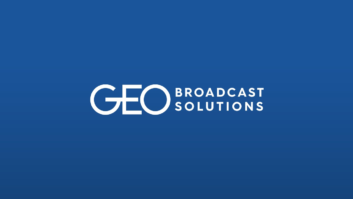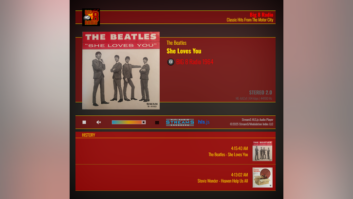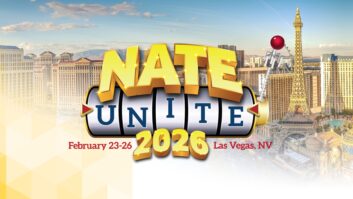Radio World’s “Guest Commentaries” section provides a platform for industry thought leaders and other readers to share their perspective on radio news, technological trends and more. If you’d like to contribute a commentary, or reply to an already published piece, send a submission to [email protected].
Radio World readers have been following our coverage of the ongoing debate over geo-targeting, of which has grown more contentious in recent months. Below, Rick Kaplan, chief legal officer and executive vice president of legal and regulatory affairs for the National Association of Broadcasters, responds to auto industry analyst Roger Lanctot’s recent commentary.
In his commentary “Time for Auto Makers to Rescue Radio,” Roger Lanctot repeats misleading and misguided claims in his support for a proposed proprietary booster technology that would allow FM radio broadcasters to target programming to even smaller areas than they already serve. While Mr. Lanctot may have the best interests of broadcast radio at heart, the unfortunate truth is that there is a real danger that GeoBroadcast Solutions’ (GBS) “ZoneCasting” technology would significantly harm free and local radio and jeopardize its long-term viability, including in the car.
Mr. Lanctot cites successful “tests of localized traffic broadcasts with locally relevant advertising in multiple U.S. markets” as proof that the Federal Communications Commission should allow broadcasters to adopt ZoneCasting. Yet, even a cursory analysis reveals these tests are woefully incomplete and insufficient, raise serious concerns and do not support GBS’s claims of consumer benefits. If anything, they suggest that employing ZoneCasting will lead to consumer confusion, especially when listening while driving between “zones.”
Oddly, Mr. Lanctot fails to even acknowledge that one of the radio industry’s primary concerns with ZoneCasting is the likelihood it will cause significant interference to broadcast signals, driving away listeners in an incredibly competitive audio marketplace.
[Related: “Lobbying Around Geo-Targeting Continues“]
Our analysis of GBS’s tests – which were conducted under unrealistic and artificially favorable scenarios – found ZoneCasting would cause widespread, unavoidable interference to signals of stations using the technology that could last anywhere from seven to 20 seconds or more. It stretches the limits of believability that a listener would stay tuned to a station during such a lengthy disruption. Instead, they are likely to change the channel or even switch to a satellite or streaming service.
Mr. Lanctot also takes at face value GBS’s claims that it has debunked industry concerns raised about its ZoneCasting tests, despite the total lack of such evidence refuting these concerns. The fact is that GBS’s testing was skewed to put the technology’s best foot forward and cover up its blemishes rather than present real-world scenarios to demonstrate its efficacy. Even then, GBS’s testing revealed major flaws with ZoneCasting that should alarm any broadcaster considering the technology.
Beyond the significant risks of harmful interference and disruption to audience’s listening experience, ZoneCasting would have a negative effect on broadcasters’ advertising revenue. While broadcast radio’s unique appeal to advertisers is the ability to reach a wide audience in a local market, ZoneCasting would diminish that advantage by splintering listenership. ZoneCasting would depress advertising rates, as ad buyers leverage the availability of cheaper ads to demand lower rates from stations that choose not to deploy ZoneCasting and lead to a race to the bottom. Mr. Lanctot parrots GBS’s claims that ZoneCasting will benefit radio stations, seemingly without any recognition of these concerns or that the thousands of broadcasters who oppose GBS’s idea may know a thing or two about their own business.
[Read More Guest Commentaries Here]
Despite his eye-rolling assertion that “the radio broadcast industry is almost completely bereft of leadership or advocacy when it comes to technological advances,” Mr. Lanctot can rest assured NAB and the entire radio industry is focused on spurring innovation, developing new tools for radio listenership and ensuring broadcasters have the regulatory freedom to meet the challenges of today and tomorrow. It is clear, though, that ZoneCasting is simply not a viable and worthwhile technology that would help us achieve the best future for radio. If GBS’s proposed system was actually a good idea, broadcasters would have pursued it themselves years ago, or endorsed ZoneCasting when GBS first brought it to industry more than a decade ago.
NAB, state broadcast associations, NPR and radio companies of all sizes and markets have expressed serious, well-founded concerns with ZoneCasting. If they are truly interested in a bright future for radio, the FCC and radio stakeholders should reject the false promises of this technology and work with broadcasters on finding real solutions that help us best serve our tens of millions of listeners.
[Related: “ZoneCasting Developer Disputes NAB Claims“]







